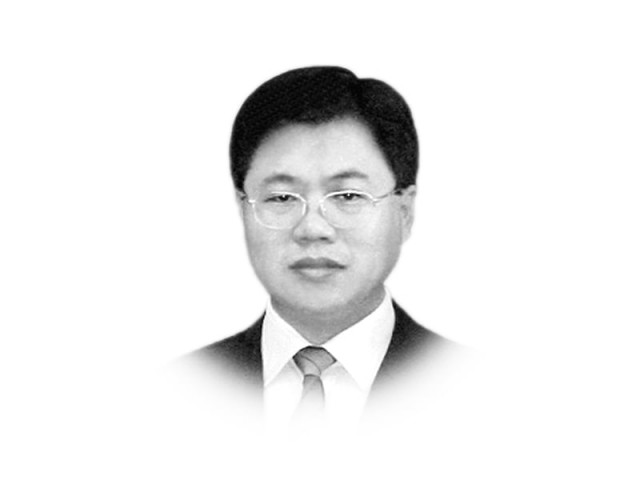Development & China’s economy
China is now at the mid-late stage of industrialisation with an urbanisation rate of 51.3 per cent.

The writer is the Vice Consul General of China in Karachi
Creating impetus by deepening reform is to fuel economic growth by rationally allocating resources through reform, which will stimulate the vitality of the market and innovation of the society. Creating impetus by adjusting the economic structure is to achieve comprehensive and balanced development by pushing forward structural adjustment through reform. Creating impetus by improving people’s livelihood is to make the domestic demand play a greater role in driving economic growth by raising peoples’ income.
The fast growth of China’s economy is attributed to the reform and opening-up policy for the last three decades. The new Chinese government has, since it took office, undertaken reform as the basis of China’s future development. It pledged to make the market function freely and to run the government within the purview stipulated by law by streamlining the administration and delegating power to the lower levels. The policy of opening up is good news for international investors.
The irrational industrial structure between urban and rural areas and between regions in China is harmful to the economy in the long term. To deal with this, China will implement a new type of people-centered urbanisation. China will expand development from the coastal areas to the inland regions step by step. And we will speed up our efforts to improve the services sector, which is our weak link. By all this, China can narrow the gap between sectors, address the structural contradictions within it, and make the structural adjustment a major driving force for economic growth.
China is now at the mid-late stage of industrialisation with an urbanisation rate of 51.3 per cent. We need another 20 years or more to achieve the target of 70 per cent, which is commonly regarded as the standard for a high-income country. During this process, more than 300 million of the rural population is expected to migrate to the urban areas. According to our calculation, urbanisation growth rate of one per cent will lead to GDP growth of between two and 2.5 per cent, which indicates the enormous consumption potential and market expansion.
China is the ideal destination for both investors and tourists. Many countries, including some developed countries, do not possess such a comprehensive transportation system, information network or mature industry system like the one in China. After decades of development, China has become a giant ‘world factory’ that is closely integrated into the global industrial and supply chain. Based on its national conditions and learned foreign experiences, it has established a comprehensive policymaking and law system which conform to its own conditions and are in line with international practices. Contrary to the instabilities in many countries and regions, China has maintained long-term political and social stability.
China’s continuous development has brought great benefits and will inject new momentum for the future development of the world. From the 1990s Asian financial crisis to today’s international financial crisis, the world economy would have portrayed an entirely different picture without China’s efforts and contributions. China has become one of the biggest trading partners of 78 countries. In the first decade since China joined WTO in 2001, the annual import by China is worth $75 million and has created more than 14 million jobs worldwide. Foreign investors have remitted a total profit of $261.7 billion from China, with an annual increase of 30 per cent. China is expected to import goods worth $8 trillion during its ‘12th Five-Year Plan’ from 2011 to 2015, which indicates great business opportunities for all countries.
To achieve sustained development, China needs to unleash the benefits of reform and open up more to the world. Our westward opening is a major step in this regard. Now Pakistan faces the arduous task of economic and social development. Given the strong complementarity of our economies and the vast space for industrial development and market expansion, it is necessary for us to strengthen cooperation. China is ready to work with Pakistan to speed up the China-Pakistan Economic Corridor to strengthen the connectivity between South Asia and East Asia and promote economic development in the neighborhood. This will not only help expand the shared interests of China and Pakistan, but also provide an exemplary model for cooperation between regional countries.
Published in The Express Tribune, May 16th, 2014.
Like Opinion & Editorial on Facebook, follow @ETOpEd on Twitter to receive all updates on all our daily pieces.



















COMMENTS
Comments are moderated and generally will be posted if they are on-topic and not abusive.
For more information, please see our Comments FAQ